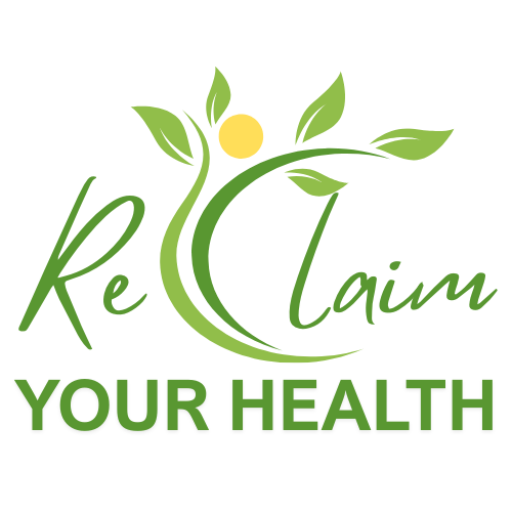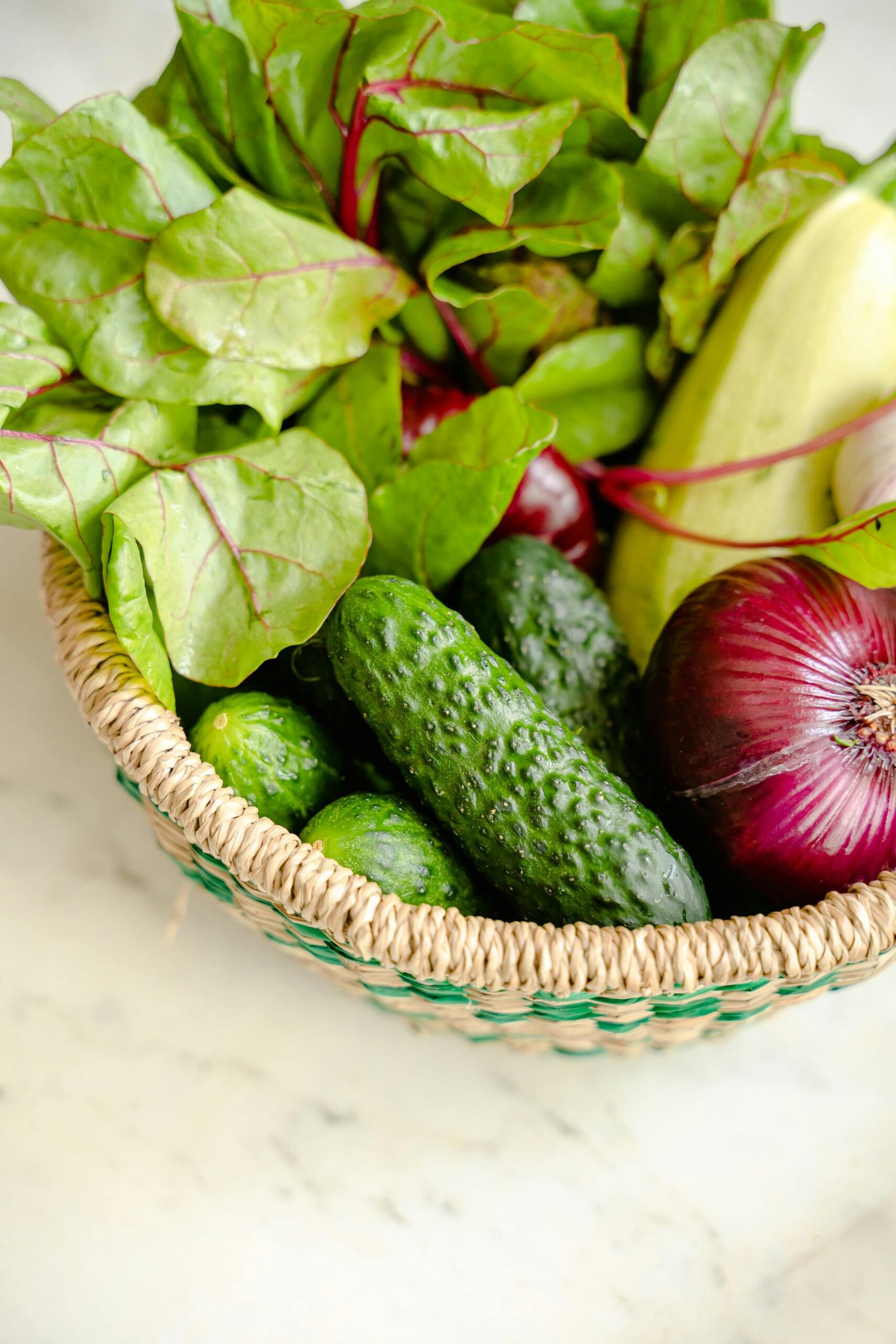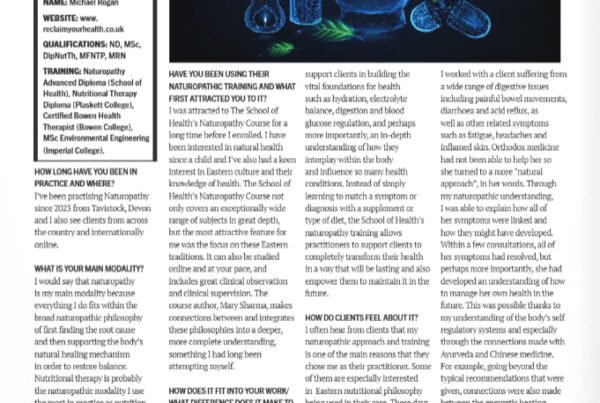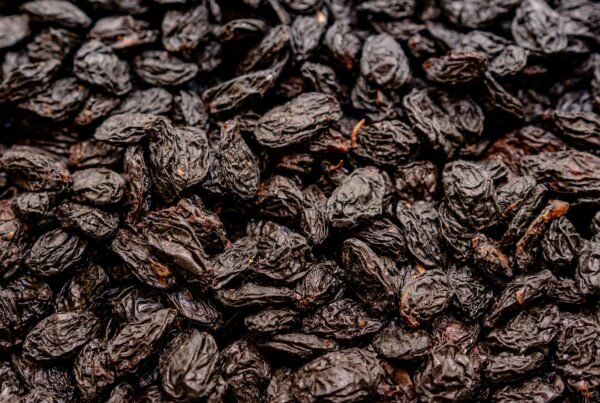Looking around today, few people are enjoying true vibrant health and well-being. If we live beyond 80 it’s considered to be an achievement, yet many of our older relatives are “living” out the last years of their lives in nursing homes, unable to look after themselves and frankly not really living at all. Such is the prevalence of this issue that many people hope to die before reaching old age. In an ideal world, where people lived to their maximum health potential, one could hope to live well beyond 80 and perhaps more importantly, live out one’s days with clear mental faculties and physical health fully intact. There are many reasons why this is not happening in today’s world and changes that we can make to get closer to this ideal. In this series of articles, I’m going to cover some of the major reasons, starting today by discussing why nutrient-dense foods are essential in our diets and where to obtain them.
In the not too distant past, when people lived closer to nature and the land, before the development of industrial farming, there were (at least) two key differences from today’s world.
1. Calorie content of the diet was far higher.
Essentially this means that people ate a whole lot more food than they do today due to their more active physical lifestyles. Whilst today, most people sit at desks in front of computers for much of the working day, in the past the majority of jobs were far more physical and thus required a lot more energy. So the total amount of food consumed was higher, some estimates putting it at 2-3 times greater than today.
2. The nutrient density of foods was greater.
Much of the food processing and preserving techniques used today destroy the nutrient quality of our foods. For example, canning of vegetables can reduce the potassium, magnesium, vitamin C and B vitamin content by as much as 70%. The problems are not just related to canning but also pasteurisation, preserving, sterlising, the use of pesticides and chemicals, irradiation of foods and even to some extent freezing. Then we must also consider that, due to industrial farming practices, designed to maximise the quantity of the food produced but without regard to the quality, result in food that has poor nutrient density through destruction of the health of the soil.
3. We are exposed to more toxins today than ever before.
Over the last few decades in particular, there has been an unprecedented rise in the quantity and range of toxins we are exposed to on a daily basis through our food, water, air, pharmaceutical drugs and the electromagnetic spectrum. Many of these toxins either deplete our reserves of key nutrients and/or require higher amounts of these nutrients in order to minimise the damage they do to us and to remove them from our bodies.
If we are eating less food, that food has less nutrients in it and we are exposed to more toxins that raise our nutrient requirements, then the end result is obviously that we are going to have far fewer nutrients for use by our body than our not-so-distant ancestors. So since we are discussing here the substances that are essential for the growth, repair and maintenance of all parts of the body, is it any surprise that people are becoming sicker and sicker, living with chronic fatigue, lethargy, brain fog, chronic pain, children developing more mental issues, more people getting cancer than ever before and our older generation losing their minds? If you don’t give your car petrol, oil and replace its worn parts, what do you think is going to happen?
So what can we do?
This is clearly a big issue for everyone living in the modern world. So, what can we do about it? With our fairly low calorie diets, we really need to take steps to maximise the concentration of nutrient in our foods. To do this, we need to focus on two things:
1. Eat more nutrient dense foods.
Some foods are richer in vitamins and minerals than others, so we need to include more of these in our diets.
2. Avoid foods that are devoid of nutrition like the plague.
This applies to processed and refined foods. Examples will be given below.
What to eat
First of all, we should focus on eating as much organic food as possible. While this comes with a higher price tag, the benefits are reflected in not only the greater nutrient density of the food, but also its taste! The key here is the lack of toxins in the food, which would increase the nutrient requirements of the body, but also that the soil will be better cared for, thus increasing the nutrient density of the food. So look for farms where they have been practising organic or similar agriculture for the longest period of time, as soil takes a long time to recover.
In addition to eating more organic foods, there are certain foods that are more nutrient dense than others, so we should look to add more of these to our diets. There could be a very long list here, but I will focus on some of the most nutrient dense foods. The general rule is to target foods in their most natural state, as fresh as possible and with the least processing.
1. Liver, organ meats and bone marrow
This could be ox liver, lamb’s liver or chicken liver. I would avoid pig’s liver for the same reasons as I would avoid pork, which I will cover in a future article. Liver is probably the most nutrient dense food available today. It is known to be the part of the body that predators eat first, long before the muscle tissue that makes up most of the meat that we typically eat.
Liver is exceptionally rich in many vitamins and minerals and should be one of the first things we look to add to our diets. Not everyone likes the acquired taste of liver, but many companies have taken advantage of this opportunity to offer freeze-dried liver in a capsule form, so you can still enjoy the benefits without having to taste it. Some of the best companies for this include:
- Hirsch Organics in the UK who use cellulose capsules – superior to the gelatin used in most others which is not organic and can accumulate glyphosate and other toxins.
- Ancestral Supplements in the US.
Other organ meats are also very nutrient dense, especially the kidneys and heart. These are possible to buy from the same sources as the liver and also often offered by the same supplement companies.
Bone broths and especially bone marrow are additional powerful options. Ancestral supplements mentioned above offer marrow in tablet form and bone broths are widely available. Another good option is the beef marrow bone broth produced by Honest and Good in the UK.
2. Oily Fish
Some of the most nutrient dense foods come from the sea. Of the fish, the oily fish from cold waters like salmon and sardines are some of the best, especially for their omega 3 fatty acids, but also vitamin D and many minerals. These must be wild caught (not farmed) and as fresh as possible. Frozen is acceptable but not tinned or smoked as these practices reduce the nutrient density and introduce other toxins.
3. Seaweed and algae
Seaweed is often overlooked and not frequently consumed apart from in Japan (whose people happen to be known for their long lives). Most vegetables, when grown well, are very nutrient dense, but possibly the most potent come from the sea. They offer a wide range of minerals and are particularly an excellent source of iodine, which most are deficient in and has a wide range of uses in our bodies, not just for the thyroid gland.
Great seaweed options to add to your diet includes dulse, Irish moss, bladderwrack and kelp. These can be bought in dried forms or even in tablets to make consumption easy. Spirulina, an algae, is another nutrient dense food from the sea.
Good sources include:
- Cornish seaweed company in the UK for dried seaweed. You will often find these in health food shops.
- Biosuperfood from Bioage and sold here in the UK.
- Irish Moss sold in capsule form at Golden Age Remedies.
What else?
I can’t list all nutrient dense foods or this article would become a book, but other great options include: oysters, mussels, eggs, hemp, pumpkin, chia and flax seeds, almonds, Brazil nuts, most vegetables, berries and wheat germ.
What to avoid
We must avoid and frankly eliminate from our diets all sources of calories that are devoid of nutrition. These take away space in our diet that could be filled with nutrient rich foods. Examples of these include all processed foods and also refined foods such as white bread, white rice and refined sugar (in fact all sugar as it depletes the body of vitamins and minerals).
Unfortunately, it is not really feasible any more to get all of the nutrients we need in the quantities we require them for optimal health and well-being from our food alone, so a smart supplement program can offer a lot of benefit. I will discuss this in more detail in future articles. However, our bodies are designed to get what we need from food not tablets, so vitamins and minerals are often better absorbed through our diets. With all of this in mind, we need to take steps to maximise our nutrient intake from our diets through the simple steps outlined in this article.
It goes without saying that the foods mentioned above are not going to be suitable for everyone to eat all of the time; we are simply discussing general principles. For a personalised nutrition plan, especially if you are looking to reclaim your health from a chronic issue, consider working with me on a naturopathic health program.




